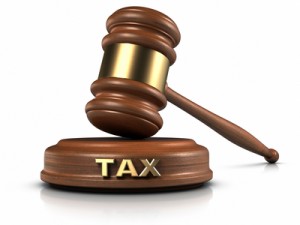Tax Liens & Deeds: An Introduction
Tax Liens & Deeds can be a lucrative form of real estate investing, but they also involve unique risks. As with any other avenue of investing, education is essential to your success. A good starting point is to understand the difference between Tax Liens & Deeds. They both function differently and are best-suited to different investment strategies.
Tax Liens & Deeds
by Adam Doran (Guest Bloger and Speaker)
Tax Liens
Tax liens are a governmental lien placed against the property when the owner fails to pay property taxes. Investors can purchase these liens by paying the taxes owed. If the owner redeems the property (pays off the taxes and fees) before the tax sale, the investor will collect their money back with interest. If the owner fails to redeem the property, the investor may proceed with foreclosure and take ownership. Depending on the jurisdiction, this may be a simple process, or it may be quite complex, requiring the assistance of an attorney.
Tax Deeds
Tax deeds are an actual deed issued to the investor by the taxing jurisdiction, for a tax delinquent property that the owner failed to redeem. In some jurisdictions, a tax deed statutorily wipes out all junior liens, giving the investor free and clear title. In other jurisdictions, receiving the tax deed causes the investor to inherit any other existing liens that come with the property. This is why it’s important to educate yourself and know the rules of the game for the jurisdiction you’re investing in.
Hybrid Liens/Deeds
Some jurisdictions have a hybrid system. In Texas, for example, redeemable deeds are issued, meaning the original property owner has a limited right to redeem their property even after the deed is issued to the investor. In some states, liens are issued that eventually convert to deeds, upon the property owner’s failure to pay taxes within a specified time period. Still in other states, some counties sell liens and some counties sell deeds.
In light of the distinctions between tax liens, tax deeds, and hybrid systems, understand that each fits with a different investing strategy. Tax liens tend to be a long-term, hands-off investing strategy. I consider them similar to a bank CD, but with a much higher interest rate, and the potential to own a high-value asset (real estate) for pennies on the dollar. Tax deeds tend to be a short-term, hands-on investing strategy. When you buy the deed, you own the property, so you’ll either be acquiring buy-and-hold properties or flipping them for a profit. The purchase of a deed will require immediate action on the investor’s part. A hybrid system could serve either the short-term or long-term investor, and may work best for those with a mixed strategy (long-term cash returns, flip some, keep some).
After deciding on a strategy, due diligence becomes the next step to successful investing in tax properties. Just like with any other real estate investment, you as the buyer are ultimately responsible for due diligence on your own investment. The majority of tax delinquent properties are junk, so you need to determine how to screen properties and locate the best prospective investments.
This article is in introduction to the basic terminology and preliminary steps for acquiring tax delinquent properties. It’s essential to also have an exit strategy, complete with a marketing plan for reselling properties, or a management plan for holding them as rentals. If you plan on buying and/or selling properties remotely, you’ll want a power team in place that is local to the area where you’re investing.
If you liked this article on Tax Liens & Deeds, don’t forget to like my Facebook Page, and you will be notified of upcoming articles, news and webinars.
 Would you like to find out more about a great program that Coach Mitch and I put together where we actually partner with you on deals and help you close on tax delinquent properties? It is the Mastermind Alliance Group. Find out more by Going Here.
Would you like to find out more about a great program that Coach Mitch and I put together where we actually partner with you on deals and help you close on tax delinquent properties? It is the Mastermind Alliance Group. Find out more by Going Here.
 Subscribe to our podcast
Subscribe to our podcast 

